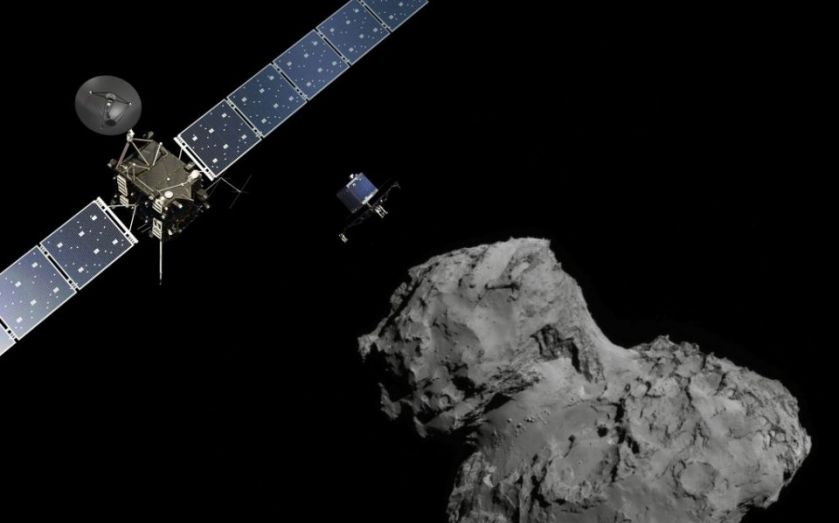Rosetta comet landing mission: Scientists think they’re on the brink of discovering alien life

The Rosetta comet could be covered in tiny alien life forms, scientists involved in the European Space Agency's comet-landing mission reckon.
Professor Chandra Wickramasinghe and Dr Max Wallis from the University of Cardiff believe comet 67P/Churyumov-Gerasimenko, which the Rosetta space craft landed on in November last year, has the right conditions for microbes to survive.
Based on computer simulations, they suggest the comet's freezing, watery regions could contain life similar to the "extremophiles" that inhabit the most inhospitable regions of the Earth. Their research shows how organisms containing anti-freeze salts could be active at temperatures as low as -40C.
They say the presence of organisms living below the icy surface is the most likely explanation for the comet's organic-rich black crust – the strange “clusters” of organic material Rosetta has picked up since it started orbiting the comet look suspiciously similar to viral particles.
“These are not easily explained in terms of prebiotic chemistry," explained Wickramasinghe.
"The dark material is being constantly replenished as it is boiled off by heat from the sun. Something must be doing that at a fairly prolific rate."
Not this mission
While comet 67P might be home to alien life, it'll require another mission to find out for sure. When the scientists first proposed the search before the craft was launched into space, it was not taken seriously. As a result, the craft was sent up with suitable equipment to conduct the search.
“I wanted to include a very inexpensive life-detection experiment. At the time it was thought this was a bizarre proposition,” said Wickramasinghe.
The purpose of the comet-landing mission is to analyse what the comet is made of, as this will offer clues about what the universe was like just after the big bang. Because the comet has been frozen for billions of years, its composition will have changed very little since then.
Wickramasinghe said:
Five hundred years ago it was a struggle to have people accept that the Earth was not the centre of the universe. After that revolution our thinking has remained Earth-centred in relation to life and biology. It’s deeply ingrained in our scientific culture and it will take a lot of evidence to kick it over.